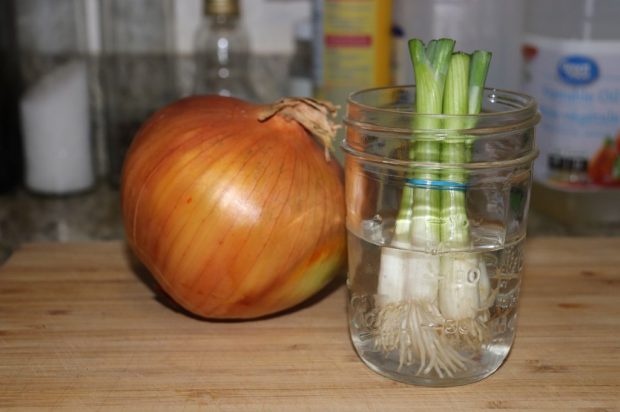As a student, it’s difficult to find the time and money to eat well. When we neglect our body’s needs for too long, however, we become unfocused and lethargic. The same goes for eating poorly or overindulging in snack foods and empty calories.
For too long have we squandered precious resources on fast-food and cheap ramen noodles, giving ourselves to convenience and haste.
As a current journalism student, a culinary management grad from Algonquin and a career-chef of nearly two decades, I have gained a great deal of insight regarding quality, budgeting and time management when it comes to healthy eating.
As we’re at the mid-term mark and therefore extra busy, I have devised a simple set of rules that can restore your love of both food and cooking – yet won’t feel like another chore.
Follow these rules diligently and you’ll get the most out of your money and your meal.
Rule 1: Spend less, cook smart.
It’s important to remember that every cent you save can be carried over to your next meal.
“Finding ingredients that you can make multiple recipes with is key to stretching your meals and your money,” said David Brasset, a chef and culinary instructor at Algonquin. “Wasting less means making more out of one thing.”
Though it would seem like common sense, this rule does not stop at coupon cutting and bargain hunting. Rather, it requires a firm understanding of shelf life, ripeness, quality and more.
When purchasing fruits for example, it’s important to know the proper ripeness of your product and buy according to your timeline of usage; expired produce is wasted money and opportunity. There are certain considerations for when deciding on what produce to buy – these factors are colour, firmness, bruising, wilting and sound – yes, sound. Knocking on melons and gourds will produce a hollow, low-pitched sound when they are ripe.
Many supermarkets and vendors will mark down damaged or over-ripe produce before throwing it away, and this is your best time to strike. Superficial damage has little to no bearing on the quality of the produce, and though it may be unattractive it is more than safe to eat. Knowing what to look for and how to shop smart will save you a great deal of money in the long run.
When dealing with perishables, it’s never a good idea to buy in abundance unless you plan to freeze or prepare them in advance. Cooking smart is knowing what to buy for the when you plan to prepare a meal, don’t think too far ahead or you may find your garbage can full instead of your stomach.
You should consider throwing away food a grievous sin against your wallet, which brings us to the next rule on the list.
Rule 2: Waste not, want not.
Most of the scraps you would usually toss away can be repurposed into something new, providing cost effective materials that can add flavour to your college life.
“The key is reusing, reusing, reusing,” said Jerome Brasser, a chef and culinary Instructor at Algonquin. “Take your ingredients and use them somewhere else. We can’t always throw what’s left away.”
You can also grow your own herbs and vegetables with nothing but a little light from your windowsill.
Vegetable skins and scraps, especially onions, carrots, celery and so on can be kept for making flavourful stocks. Similarly, Chicken and beef bones can be used to add richness and body to your soups due to their gelatin content.

You can also blend garden vegetable ends – such as bell pepper and cucumber – with chickpeas and garlic to make a delicious humus to enjoy with the unleavened bread of your choice. Additionally, growing your own herbs can add a simple yet effective touch to any recipe and cost far less than purchasing them individually, as fresh aromatics are far more potent than their dried counterparts and can be used continuously.
Preserving the roots of certain vegetables will allow you to quickly regrow them by simply placing them in a vessel of water and exposing them to sunlight. Comparably, the seeds of most flowering fruits and vegetables and be planted and grown in the home with minimal effort and care.
Careful preparation and utilization of any leftovers is the key to creating consistently affordable and healthy meals, which brings us to the final, and perhaps most important rule.
Rule 3: Preparation for preservation
We all struggle with busy schedules, part-time jobs and maintaining our social lives as college students, which means there isn’t always enough time to cook or even eat.
However, if we practice shrewd preparation and preservation rituals until they become habitual, you will find yourself meeting those calorie requirements and staving off bothersome pangs of hunger throughout the day.
Taking some time during your off hours to pre-emptively produce meals will help alleviate time constraints and ensure a sensible and nutritious intake schedule.
Making enough to support the three meals a day dynamic for the span of a week will create a stable timeline for consumption and preservation that minimizes wasteful tendencies and curbs the desire to snack.
“Know what to start with, measure properly, buy sensibly and when you produce be sure to use all the elements in your dish,” said Sean Edwards, a chef and culinary instructor at Algonquin.
Freezing and refrigerating is an essential practice for preservation and knowing the shelf life of individual products is important for success.
Though this may come with trial and error, repetitive practices can make even unfamiliar ingredients seem simple to prepare.
Provided you follow these rules and are conscious of your spending, cooking for college will become like second nature to you. Remember that each meal doesn’t necessitate extravagance, but proper planning and diligent dietary control will set the bar for your personal culinary success.


